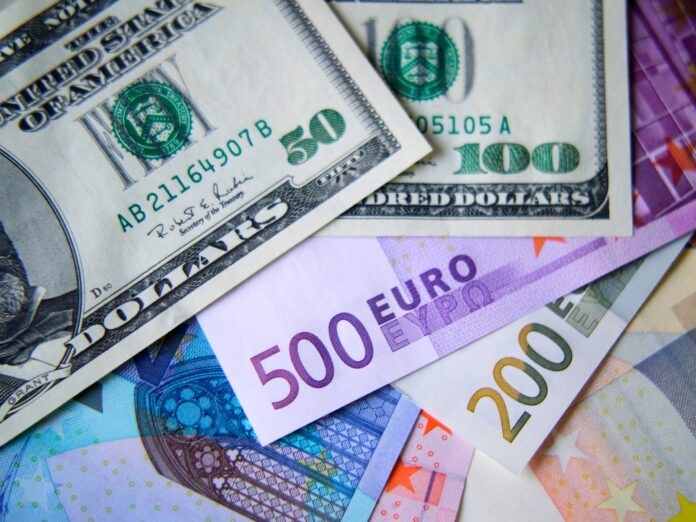The global Islamic halal economy is set to reach a market value of $7.7 trillion by 2025, more than double the $3.2 trillion it reached in 2015 and significantly higher than the $5.7 trillion it was valued at less than three years ago in 2021, according to industry experts.
A report by the General Council for Islamic Banks and Financial Institutions revealed last year that the global Islamic funds market has grown by more than 300 percent over the past decade, with nearly $200bn now under management globally.
The statistics depict a rise in both demand for halal – or “sharia compliant” – investments and opportunities.
Investing is permitted under Islam, but certain aspects of investment practice – such as charging or paying interest – are not. This has traditionally meant a lack of opportunities for Muslim savers and investors in the past.
What is halal investment?
Halal is an Arabic term meaning “permitted” and stipulating that:
- Transactions cannot involve “riba” (interest).
- Investments must not be made in “haram” (unlawful) assets or commodities such as pork products, alcohol or military equipment, among others.
- Investments cannot be made based on “gharar”, which has been described as “highly uncertain transactions or transactions that run contrary to the idea of certainty and transparency in business”.
“Halal investment is basically managing your money and finances in line with your faith,” Omar Shaikh, director of Islamic Finance Council UK (UKIFC), told Al Jazeera. “Muslims believe that earning money in a way which is halal is better than earning money (even if that is more) in a way that is harmful to society and against the morals of the religion.”
Umar Munshi, co-founder and managing director of Islamic finance group Ethis, said sharia compliance is key, but institutions and investors looking for ethical investments need to go even further to ensure a business is completely ethical.
“The actions of a business must not have a negative impact on society or the environment,” Munshi told Al Jazeera. “So it’s not only compliant, but refraining from having a negative impact. Investing in a tobacco company, for example, may be sharia compliant, but it’s not good for society.”
How does halal investment work?
One example of halal investment is Islamic business financing, which works using new models of profit-sharing, sharia-compliant insurance and sukuk, an Islamic financial certificate that represents a share of ownership.
Unlike with conventional bonds – a form of IOU that investors can buy in order to receive interest payments – sukuk investors receive partial ownership of a business and then receive profit payments, which are generated over time. These payments are made instead of interest in order to ensure sharia compliancy.
“Islamic finance as a sector is barely 30 years old, with the past 15 years seeing the most development,” Shaikh from UKIFC said. “It takes time to educate and create awareness and as this has happened, more banks have focused on servicing the demand for halal investing. This in turn helps to create more products, which then creates more demand.”

Why is halal investment becoming more popular?
A Goldman Sachs report published in December 2022 estimated that by 2075, five of the world’s 10 largest economies – India, Indonesia, Nigeria, Pakistan and Egypt – will have Muslim populations amounting to more than 850 million people.
As the population rises, so does its demand for financial products. According to the State of the Global Islamic Economy Report 2023, published by research group DinarStandard, some $25.9bn was invested into sharia-compliant investments in the financial year 2022-23, marking a 128 percent year-on-year growth.
“In general, it [halal investment] is on the rise. People are a lot more educated and more aware of how their dollar impacts the socioeconomic landscape globally,” said Siddiq Farid, co-founder of SmartCrowd, a real estate investment platform based in Dubai.
“They are a lot more cautious, too, hence leading to more ethical investing, which halal investing is a big component of. It’s on the rise, particularly around the younger generation. The millennials, they are a lot more aware socially. People realise exactly where their money is going and how it’s being used.”
An increase in opportunities for halal investing and their ease of access are also cited as reasons driving the rise in demand.
Israel’s war on Gaza and its impact
More recently, the rise in demand for halal investments has received an additional boost as consumers boycott brands seen as supporting Israel and its war on Gaza.
The war, which has seen more than 32,000 Palestinians killed by Israeli attacks in Gaza, has “adjusted” the mindset of these investors, Farid said.
“Halal investment has been increasing steadily and it has accelerated further in the past six months, mostly among millennials and people under 40,” he said.
“But in the past, it’s more of these people just looking for something halal. As long as it’s not haram, it’s fine. Now, there’s more awareness of not only halal, but halal aligned with values and faith. All these boycott movements have got people much more aware that something may be halal, but you might not necessarily want to use it, be associated with it or invest in it.”

How has technology contributed to the rise of halal investing?
FinTech Magazine reported in December last year that while Muslims make up nearly a quarter of the world’s population, barely one percent of financial assets qualify as sharia compliant. This is set to change, say experts, with the arrival of “fintech” – financial technology that can make investing much more accessible for ordinary consumers and individual investors.
“Muslims are generally not as well educated when it comes to investing, and this is partly due to a lack of available options for them as Muslims. Even basic information pertaining to sharia-compliant investments is often not available to most of the Muslim population,” said Ibrahim Khan, co-founder of the online financial platform Islamic Finance Guru, in an interview with FinTech Magazine.
However, the rise of social media has contributed to an increased awareness and significant growth in sharia-compliant finance. In addition, fintech has made halal investment options, which are often much more convenient and easy to use with a smartphone or laptop, more accessible.
Consultancy group McKinsey & Company published research in January this year showing that “revenues in the fintech industry are expected to grow almost three times faster than those in the traditional banking sector between 2023 and 2028”.
“Your phone is often physically the closest thing to you. Fintechs are able to start from this paradigm and build solutions that are efficient and enhance transparency and choice for retail customers. This is where a lot of the action is at. Many banks are now creating fintech-based solutions or acquiring fintech players,” said UKIFC’s Shaikh.
Munshi added the selling point for fintechs is the age of the target audience.
“The younger generation is more open to investing online,” said Munshi, whose company operates an online platform and community for alternative finance and investment opportunities.
The same research by McKinsey & Company showed that the fintech industry raised record capital in the second half of the 2010s. Venture capital funding grew from $19.4bn in 2015 to $33.3bn in 2020, a 17 percent year-over-year increase.
As of July 2023, publicly traded fintech companies had a combined market capitalisation of $550bn, double that of 2019, the research said.

